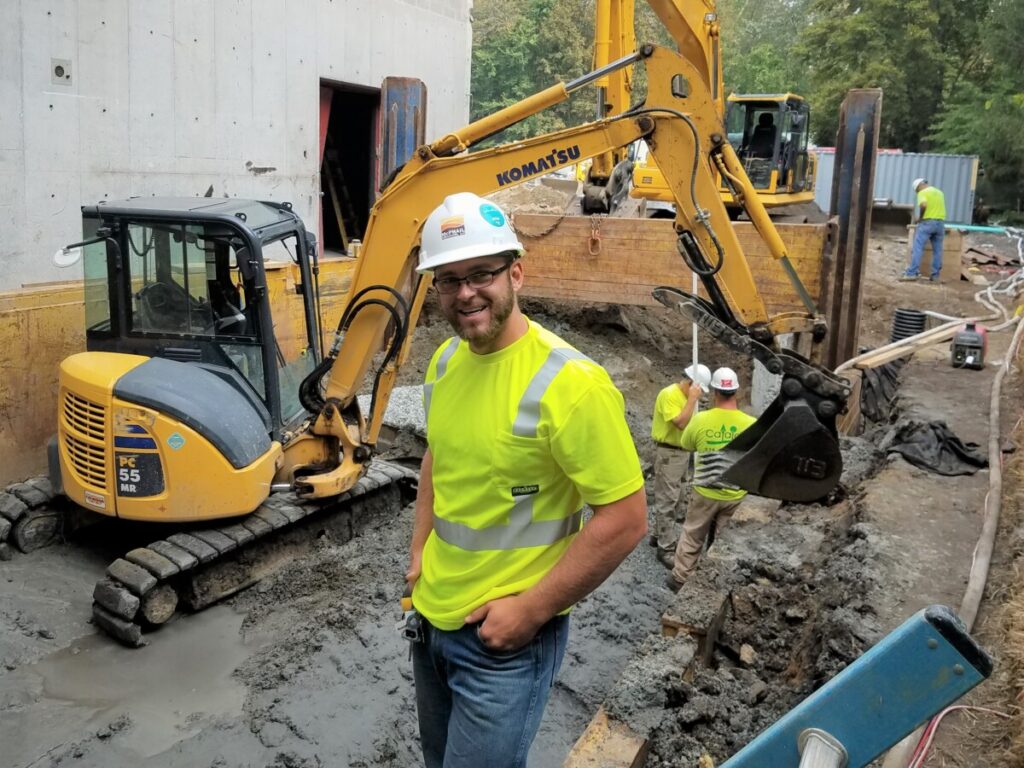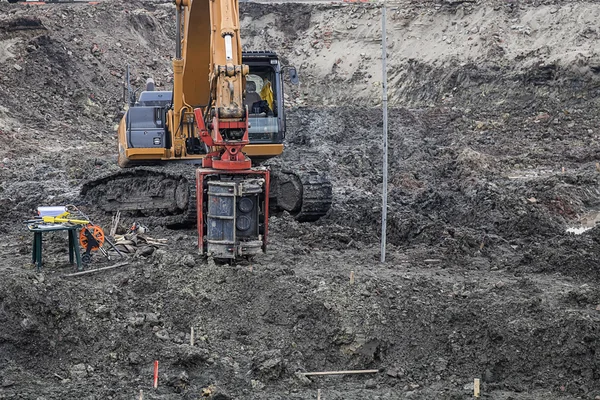How Geo Tech Engineering Sustains Large-Scale Construction Projects
How Geo Tech Engineering Sustains Large-Scale Construction Projects
Blog Article
Recognizing the Comprehensive Function of Geotechnical Engineers in Ground Examination and Soil Evaluation for Construction Tasks
Geotechnical engineers are indispensable to the success of building tasks, supplying essential understandings with comprehensive ground examinations and dirt analysis. Their proficiency in examining soil actions and utilizing innovative testing strategies informs important choices that promote structural stability and security. By teaming up and identifying prospective threats with multidisciplinary teams, these experts significantly influence job end results, including effectiveness and cost-effectiveness. Nonetheless, the complexities of their function often prolong past these features, prompting a much deeper exploration into the approaches they utilize and the ramifications of their searchings for on overall job stability.
Duty of Geotechnical Designers
The essential function of geotechnical engineers in construction projects can not be overemphasized, as they provide essential understandings right into dirt habits and website problems. These specialists are entrusted with assessing the viability of the ground for different kinds of frameworks, ensuring safety and security throughout the building and construction process. Their experience includes a vast array of activities, consisting of website characterization, dirt tasting, and research laboratory screening, which are crucial for establishing the mechanical and physical buildings of the soil.
Geotechnical designers utilize their findings to create foundational styles that accommodate load-bearing needs and alleviate risks associated with soil negotiation, liquefaction, and incline security. They play an important role in recognizing prospective threats, such as groundwater changes and contamination, which can dramatically affect task practicality. In addition, they collaborate with designers, civil designers, and professionals to make certain that geotechnical considerations are integrated right into the overall design and building and construction phases.
Ground Investigation Methods
Ground examination techniques develop the foundation of geotechnical engineering, allowing designers to obtain an extensive understanding of subsurface problems. These techniques are vital for analyzing soil properties, identifying groundwater degrees, and recognizing possible geological hazards.
Typical approaches include borehole boring, which enables the extraction of soil samples at different depths, offering critical information for analysis. Furthermore, in situ screening methods, such as Standard Penetration Examinations (SPT) and Cone Infiltration Examinations (CPT), are utilized to examine dirt stamina and density directly in the ground.
Geophysical techniques also play a substantial duty in ground investigations. Techniques such as seismic studies and electric resistivity tomography help analyze subsurface features without substantial excavation. geo tech engineering. These non-invasive methods are specifically helpful in big or delicate locations where disruption have to be lessened
Additionally, exploratory trenches can be dug deep into to visually inspect dirt layers and identify any kind of anomalies. Each of these strategies contributes one-of-a-kind insights, allowing geotechnical designers to develop precise website evaluations and educate style choices. In summary, a mix of these ground examination methods is essential for successful building and construction projects, making certain security and architectural stability.
Dirt Evaluation Approaches
Soil analysis approaches are essential for comprehending the chemical and physical properties of dirt, which straight influence the design and building and construction of structures and other structures. Different strategies are employed to evaluate soil features, ensuring that geotechnical engineers obtain accurate data for informed decision-making.
One frequently made use of approach is grain size analysis, which identifies the distribution of bit dimensions within a dirt example. This is vital for categorizing soil types and anticipating their actions under lots. An additional essential technique is Atterberg limitations testing, which assesses the plasticity and wetness material of fine-grained dirts, supplying understandings right into their engineering residential properties.

Field examinations, such as Conventional Infiltration Tests (SPT) and Cone Infiltration Tests (CPT), deal valuable in-situ data pertaining to soil toughness and stratification. Collectively, these dirt analysis techniques create the my sources foundation of geotechnical investigation, permitting engineers to create safe and efficient frameworks customized to the particular problems of the site.
Danger Reduction Techniques
Applying effective danger reduction strategies is vital for geotechnical designers to address prospective obstacles in construction jobs. These methods are essential in identifying, evaluating, and handling threats related to soil conditions, site stability, and groundwater changes, which can detrimentally influence project outcomes.
One main method entails performing comprehensive website examinations that make use of advanced geophysical techniques and comprehensive dirt tasting. By acquiring exact information on subsurface problems, designers can make educated choices on style and building techniques. Furthermore, utilizing predictive modeling tools permits for the simulation of various circumstances, making it possible for designers to predict possible issues and carry out safety nets.
Additionally, establishing clear communication networks amongst job stakeholders fosters a joint strategy to take the chance of administration. Routine updates and assessments ensure that all events are mindful of the progressing site problems and can adapt their methods as necessary.

Influence On Building Jobs
The performance of threat reduction approaches straight affects the official source total success of building and construction tasks. Geotechnical designers play a crucial duty in this domain name, as their proficiency in ground investigation and soil analysis informs crucial decisions throughout the construction process. By accurately assessing soil problems and recognizing possible dangers, these experts allow job teams to devise effective solutions that lower threats linked with ground instability, water seepage, and other geotechnical challenges.
The impact of thorough geotechnical evaluation is noticeable in different elements of construction projects, consisting of expense administration, project timelines, and architectural honesty. Early recognition of problems permits prompt treatments, reducing costly delays and spending plan overruns. An extensive understanding of website conditions boosts the design and design process, making certain that structures are constructed to endure ecological pressures and possible natural catastrophes.
Ultimately, the payments of geotechnical designers are important to the effective execution of building and construction projects. Their job not just fosters security and conformity with policies yet also improves the lasting sustainability of structures, making sure that they execute efficiently throughout their desired lifespan. The partnership in between geotechnical groups and other stakeholders is essential for accomplishing optimum outcomes in building ventures.
Verdict
In conclusion, geotechnical engineers do a crucial function in building jobs via thorough ground investigations and soil analyses. Their know-how in analyzing soil behavior, employing various investigation methods, and carrying out threat reduction strategies considerably contributes to the architectural integrity and safety of constructed settings. By collaborating with multidisciplinary groups, these experts boost job efficiency and ensure compliance with security requirements, eventually causing successful construction Read More Here end results and decreased prospective hazards.
Geotechnical designers are indispensable to the success of construction projects, providing vital understandings via detailed ground investigations and soil analysis.The crucial duty of geotechnical designers in construction projects can not be overemphasized, as they supply vital insights right into dirt behavior and website problems. Their competence includes a wide array of activities, consisting of website characterization, dirt tasting, and research laboratory testing, which are critical for figuring out the physical and mechanical residential properties of the soil.
By properly examining soil problems and identifying possible risks, these specialists allow project groups to devise efficient solutions that lower risks linked with ground instability, water infiltration, and various other geotechnical challenges.
In verdict, geotechnical engineers do an essential feature in construction jobs via extensive ground examinations and soil analyses.
Report this page